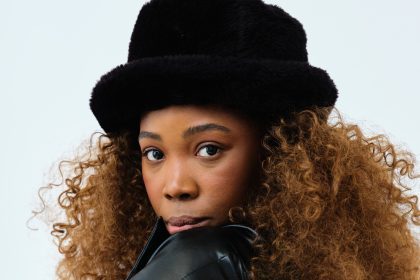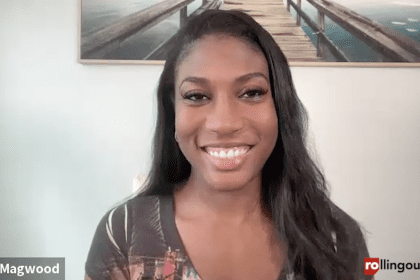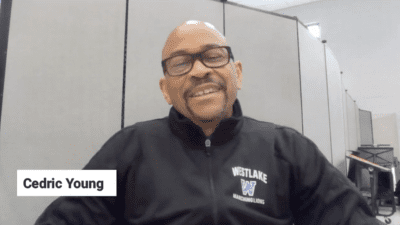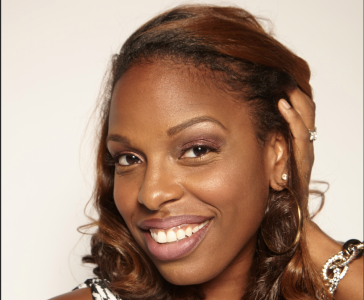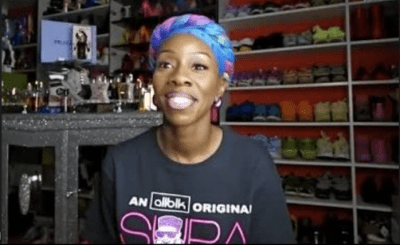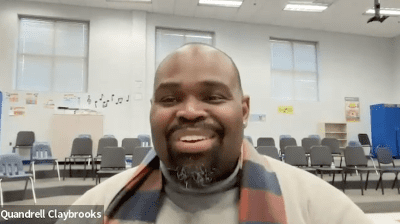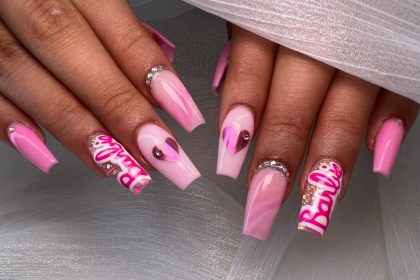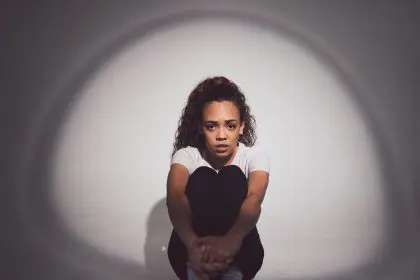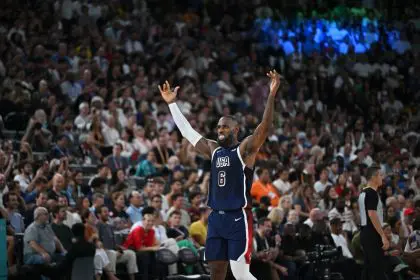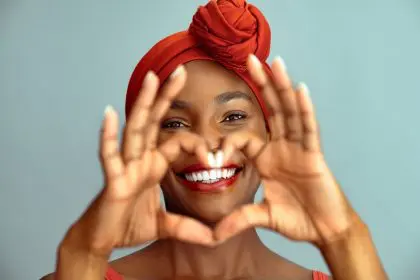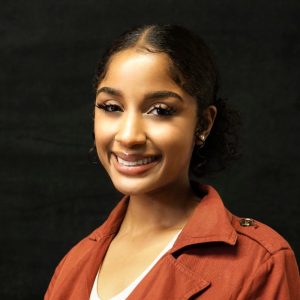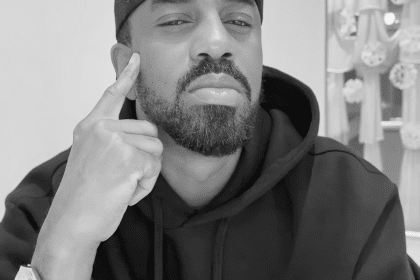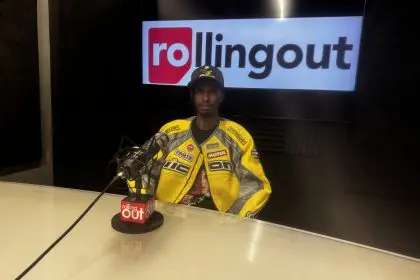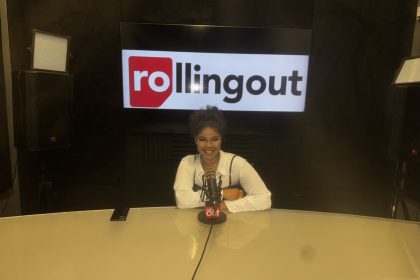Filmmaker and director Nailah Jefferson’s movies span fiction and nonfiction. Jefferson’s latest documentary Donyale Luna: Supermodel is a co-production between Lightbox Entertainment and the American Black Film Festival and will be distributed by HBO in September 2023.
Jefferson is currently wrapping the feature documentary titled Commuted about Danielle Metz, a woman whose triple life plus 20-year drug sentence was commuted by President Obama in 2016 after she served 23 years in prison.
This film led to her winning the 2019 PitchBlack competition, and was supported by the Sundance Institute, Tribeca Film Institute, Chicken & Egg Pictures, Perspective Fund, Southern Documentary Fund, Black Public Media, ITVS, and Firelight Media.
The native New Orleanian opened up about why protecting Donyale Luna’s story was her primary goal.
What can viewers expect to see from Donyale Luna: Supermodel?
I was introduced to the project by Jeff Friday, who is the CEO of the American Black Film Festival. He’s also an executive producer on the project. Luna was introduced to him by Isoul Harris and Melissa Kramer. I’ll let us all talk about their journey in bringing the film to the American Black Film Festival, but I just want to say how thankful I am. I wouldn’t have had the opportunity to direct a film about such a fascinating, extraordinary, pioneering revolutionary woman.
As a Black woman, what was it like telling her story?
Had it not been for Luna, there wouldn’t be a Beyoncé on the cover of Vogue or Rihanna. [Luna] led the way and opened up so many doors for people, and they don’t even realize it. I knew the gravity of this story. Working in this business for 10 years now, I understand it’s not all pretty. I just saw Luna in those moments where she wanted to fight to be free, to be herself, and to let her voice be heard. So many things were coming against her. I understand that as a creative working in this industry, it is monetized. It’s more about business than it is about art. I also felt like I needed to protect Luna in many ways if anybody wanted us to kind of steer away from showing her as an artist or as a Black woman showing her struggle but also her light. I would say through this experience, I think it helped me to find my voice and to use my voice even more. I think even on the other side of production as we’re pushing this film out, we’re just making sure that people hear it and see it. It would be such a shame if again, Luna’s story was kind of dismissed. That’s why we’re here, we’re continuing to push, and we’re just trying to give her the biggest stage that she can have because she deserves it; she did so much. It’s been 40 years since her death and she’s never gotten her credit. As a Black woman and as the director of this film, I was entrusted to tell her story by the family, and by Dream, her daughter. I just know that it was a huge opportunity, but also a huge responsibility. I just want to make sure that we all just give Luna her due and as Jeff would always say, and Jonathan Chen of Lightbox who’s also an executive producer on this film, “We just want to uphold her and love her in a way that she wasn’t able to be loved when she was on this Earth.”
How do Black women continue to fight this battle of being disrespected despite the gifts they share with the world?
The Black woman is the most unappreciated person in America. It just is what it is. It’s unfortunate but I mean, you look at Black women and what we do, we’re definitely the most unappreciated, but we’re so powerful. That’s what I love about us. I hate to use the word resilient because it just annoys me that’s forced upon you because you keep having to push and fight. I think that’s the word that I told myself. I was like, that’s going to be my New Year’s word, resist. I’ll go with that Black women and resistance. When you look at us, there’s so much that’s been set up to make us feel small or not enough, to try and shrink us and push us down. We’re the most educated group of people in America and when you think about our political power, you think about our buying spending power, all of that. Black women push culture forward as well, but we never get our [credit]. That’s kind of how the story goes, unfortunately. I think when you look at Luna, and then you have someone say, “I’ll pass on that,” I think it’s easy to fall into a fence. We should all work against that because it’s the easy thing to do. That’s not even a real emotion. That’s just an easy, quick, dismissive response. I think for all of us we should give each other a bit more grace. We may not completely understand somebody, but at least try and hear them, because there are different parts of us that are all misunderstood. So that’s one thing, I think is important about Luna’s story but going back to Black women, we’re always constantly held up to a White standard of beauty. We resist, and if we’re unappreciated, but we definitely want to touch upon those aspects in the film where Constance White does perfectly and she talks about the White standard of beauty. Aurora James also reflects on what it must feel like to be Donyale Luna, knowing that you’re talented, knowing that you’ve put everything on the line for this career, but no matter what you do, even if you’re the most beautiful woman in the room, and the best model in the room, you’re still not appreciated. Hopefully, the fashion world will look at this film, and take a long, hard look at themselves and say, “Okay, that’s where we were then but we’ve made some progress. We still have so much more to do on how we can appreciate not only Black women but women of color, in a way where they feel more included in this industry and more seen.
Why should creatives embrace moving out of their city?
Well, for Donyale Luna, she had to be in the center of it all. In New York, she could be embraced and she wasn’t seen as a freak or weirdo like she was in Detroit, where she was tall and skinny, and people called her Olive Oyl. In New York, she was a beautiful gazelle. Sometimes it’s about making the move where you can be appreciated. Whether that’s a move geographically, a move within friendships, or a move spiritually, whatever it is for you. I think we all need to learn to be in places where we feel we can be seen. For Luna to be a model, she had to be in New York. It’s funny because I’m in New Orleans, but I’m making this happen for myself. I’m a filmmaker and I did live in New York for some time, and I lived in LA for some time, but now as people are saying, “I want to live my soft life.” I think New Orleans is where I have family, I have a bit of support, but I can zoom in. I did have to kind of till the ground, and do that work in New York and LA when I was kind of younger in my career but for me, it’s about where I feel I can thrive the most. If I feel like I can do that at home in a place where I feel more supported, then I can come out and still make a beautiful film. I can fly to New York, LA, or Italy, or wherever the story takes me and we can put it all out there. I think geography can be important depending on what your career is but I think as far as the moves go, it’s not just geography, it’s also moving your mind and your spirit with the groups and the people that you are aligning yourself with. Like where do you need to be to reach your full potential? Even with Luna, it was in New York in the beginning, but she had to find her freedom in Europe. It wasn’t just anywhere in Europe, it was Rome, where she found her twin flames. That’s where she initially met Juan, who’s a great friend, that’s where she also lived with Omar for a time, and it’s where she met her true love, Luigi, in her love for art and photography. That all blossomed in Italy, but it’s also where she found her core group of people as well. So, I think it’s more than just geographical.
As a director, what other stories do you want to highlight?
Well, I want to make sure that we don’t just focus on people who’ve reached some type of celebrity. I’ve been working on a story about a woman who was a part of the mass incarceration system. She was given a triple life sentence for drugs, but it was in association with her husband. So there are many women like that who are spending life sentences and prison for drug crimes dealing with their husbands or boyfriends. We call them boyfriend crimes, but since she’s been home since. Her name is Danielle Metz, and she was given clemency by President Obama in 2016. We’ve been filming with her for about six years, and that film will be at the New Orleans Film Festival in November. The name of it is Commuted, but for someone like her to have the fortitude to get up every day, knowing that she had a triple life sentence, and say, “Okay, I’m going to keep fighting for my freedom. I have two children I left at home, I have a mom at home,” and to come home to care for her ailing mother, reconnect with her two children, graduate from college, and help other women get out of prison now is amazing. So just stories of women like that. I think one thing that Danielle Metz and Donyale Luna have in common is that they just kept going. They kept pushing no matter what was set up against them and we have to realize that within our criminal justice system, there have been boundaries put in place specifically to stop the progress of the Black family. This didn’t just happen to us because we are people with problems. No, this was done purposefully. Even when you talk about the fashion industry, there have only been so many women on the cover of Vogue. That’s done purposefully. There are systems put in place to only let us rise to a certain level. So looking at those stories of Black women, whether they reach some type of celebrity like Donyale Luna, or whether they’re just regular women like Danielle Metz, those are the stories I want to uplift and highlight. One thing I do want to say about filmmaking is that you often take on the emotions of the people that you’ve been working with. I think with Donyale Luna, and working with Dream to get through the trauma and all of that. From living 40-plus years without her mother, and not even being able to tell that story, that’s a lot. I think the whole team felt that. Then again, with Danielle Metz coming out of prison and dealing with the loss of her mother, dealing with her children, and all of the hardships there. Those are heavy things to carry. You also have to give yourself a break and lean into stories that are lighter. So, that’s what I want to do. I want to find a story where we win with no question because Luna was a winner but at the end of the day, her life was hard and we lost her. Danielle Metz is overcoming things, but she lived through 23 years in prison, that’s tough. So, I want to find a story where we win in the end, no question. That’s what I want to find. I do think that we need to see more of that in our storytelling, and more celebration of that in our lives. Moving forward, those are the stories that I’m looking for now. Again, it could be someone who’s reached some type of celebrity, or someone who just raised a fabulous family, or just a woman who said, “I don’t want a family, I’m doing this on my own. I’m living my life completely free how I want to be.” That’s the next kind of story of a Black woman that I want to uplift.

